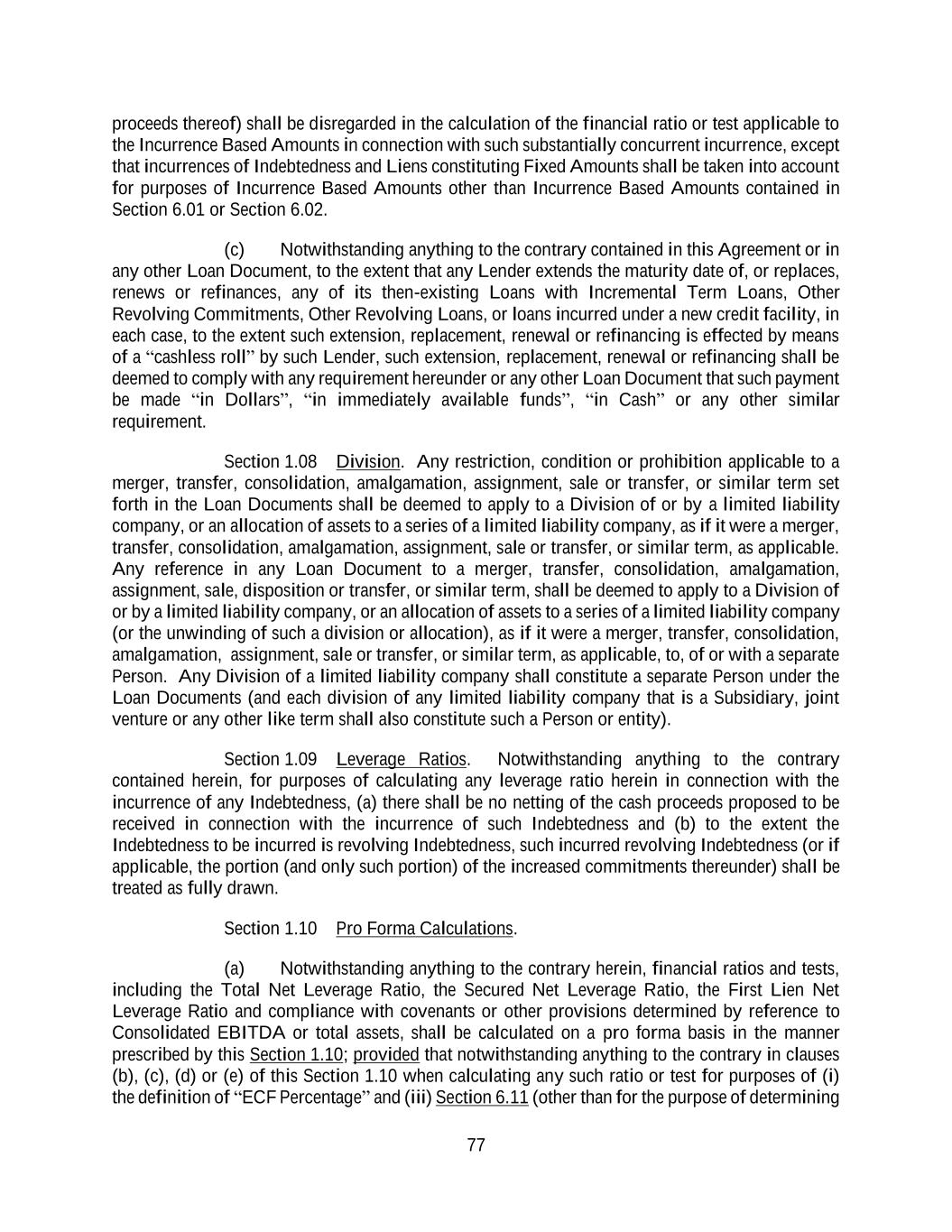Incurrences: Navigating the Impact of Unforeseen Events
Incurring means acquiring or subjecting oneself to something, often negative like debt or consequences. It involves becoming subject to consequences due to one's actions.
The term "incurrence" typically relates to debt or undesirable consequences resulting from one's actions. It signifies taking on something, such as debt or guilt, and facing the resulting outcomes. Incurring is a common concept in financial contexts, reflecting the acquisition of debt or obligations.
This act of acquiring or becoming subject to something is crucial in understanding various consequences and responsibilities that individuals or entities may face. Understanding the implications of incurrence is essential in managing risks and obligations effectively.
The Nature Of Incurrences
Incurrences refer to the act or process of acquiring, taking on, or subjecting oneself to something, typically something negative, such as debt, guilt, or someone's anger. It involves becoming subject to consequences, especially as a result of one's own actions.
The Definition Of Incurrence
According to Dictionary.com, incurrence is the act of incurring, and it is most often used in the context of debt.
Types Of Unforeseen Events
- Financial liabilities
- Legal disputes
- Health emergencies
- Natural disasters

Credit: fastercapital.com
Historical Incidences Of Incurrence
Throughout history, there have been notable instances of incurrences, where individuals or societies have taken on various burdens or consequences. These incurrences often involve debts, responsibilities, or repercussions resulting from specific actions or decisions. Each incurrence has shaped the course of events and influenced the outcomes of significant historical events.
Case Studies
In the historical context, numerous case studies shed light on the diverse nature of incurrences. From financial to personal liabilities, these case studies reveal the impact and consequences of incurring various obligations.
Lessons Learned
Examining the historical incidences of incurrence provides valuable lessons. It highlights the importance of prudent decision-making, risk assessment, and the need for responsible management of resources.
Psychological Impact Of Unexpected Events
When unexpected events occur, they can have a profound psychological impact on individuals. The sudden and unpredictable nature of such events can lead to a range of emotional and mental responses, often causing distress and anxiety. Understanding the psychological impact of these events is crucial in order to develop effective coping mechanisms and support systems for those affected.
Coping Mechanisms
When individuals are faced with unexpected events, it is important for them to have effective coping mechanisms in place. These may include seeking social support, engaging in stress-reducing activities such as exercise or meditation, and practicing mindfulness and self-care. By implementing these coping strategies, individuals can better manage the emotional toll of the unexpected event and work towards regaining a sense of stability and control.
Long-term Effects
The psychological impact of unexpected events can extend far beyond the initial occurrence. Long-term effects may manifest in the form of post-traumatic stress disorder (PTSD), anxiety disorders, or depression. It is essential for individuals to seek professional help and support in order to address and mitigate these long-term effects. Additionally, creating a supportive environment and fostering resilience can aid in the recovery process and promote psychological well-being over time.

Credit: www.sec.gov
Financial Repercussions
Financial repercussions can arise from unexpected incurrences, leading to potential debt or negative consequences. It is crucial to mitigate risks and carefully manage financial decisions to avoid adverse impacts on one's financial well-being.
Financial Repercussions Incurring debt can have significant financial repercussions on individuals, businesses, and even governments. Debt incurrence refers to the act of taking on financial obligations that will need to be repaid with interest. This can lead to financial strain, limited resources, and potentially even bankruptcy. In this section, we will discuss the economic recovery strategies that can be implemented to mitigate these repercussions. H3: Incurrence in Debt Taking on debt can be a necessary step for many individuals and businesses to achieve their goals. However, it is essential to understand the risks associated with debt incurrence. High levels of debt can lead to financial instability, limiting future opportunities and growth. It is crucial to develop a plan to manage debt effectively, including budgeting, prioritizing repayments, and seeking professional financial advice. H3: Economic Recovery Strategies Economic recovery strategies are essential in helping individuals, businesses, and governments to overcome the financial repercussions of debt incurrence. These strategies can include implementing fiscal policies, such as reducing spending and increasing revenue, or monetary policies such as lowering interest rates to stimulate economic growth. It is vital to understand the economic environment and develop a recovery plan that is tailored to the specific needs of the situation. In conclusion, incurring debt is not inherently bad, but it is essential to understand the potential financial repercussions and develop a plan to manage it effectively. Implementing economic recovery strategies can help mitigate the negative consequences of debt incurrence and facilitate long-term financial stability and growth. By being proactive and taking steps to manage debt effectively, individuals, businesses, and governments can ensure their financial well-being and success.Risk Management Strategies
Implementing effective risk management strategies is crucial to mitigate potential incurrences. By identifying and addressing risks proactively, businesses can minimize negative impacts and protect their assets. Adopting a comprehensive risk management approach helps organizations navigate uncertainties and safeguard against unforeseen liabilities.
Risk Management Strategies Incurrences are an inevitable part of business operations. Whether it be financial risks, legal risks, or even natural disasters, every organization must manage risks to ensure continuity and sustainability. Risk management strategies are the set of processes, methods, and tools used to identify, assess, and mitigate risks. In this article, we will focus on two essential risk management strategies: preventative measures and contingency planning. Preventative Measures Preventative measures are the actions taken to avoid or reduce the likelihood of risks occurring. These measures are proactive and aim to eliminate potential risks before they materialize. Some of the most common preventative measures include: - Conducting regular risk assessments to identify potential risks. - Implementing robust internal controls to minimize the likelihood of fraud and errors. - Providing employee training and awareness programs to promote responsible behavior and reduce risks. - Maintaining up-to-date equipment and technology to minimize the risk of equipment failures and downtime. - Establishing an emergency response plan to mitigate the impact of potential risks. Contingency Planning Contingency planning is the process of developing an action plan to respond to unexpected events or crises. This plan outlines the steps to take in the event of a risk materializing and aims to minimize the impact of the risk on the organization. A comprehensive contingency plan should include: - A clear definition of potential risks. - A detailed response plan for each identified risk. - Identification of key personnel responsible for executing the plan. - An inventory of resources required to execute the plan. - A communication plan to keep stakeholders informed during the crisis. In conclusion, implementing preventative measures and contingency planning are critical risk management strategies that every organization should adopt. By taking proactive steps to identify and mitigate risks, businesses can minimize their exposure to negative consequences and ensure long-term success.Legal Implications
When it comes to incurrences, there are important legal implications that individuals and businesses need to be aware of. From contractual obligations to liability issues, understanding the legal aspects of incurrences is crucial for navigating potential challenges.
Contractual Obligations
Contractual obligations are a significant aspect of incurrences. When an individual or entity incurs a debt or liability, it often involves contractual agreements. Whether it's a loan, lease, or business arrangement, incurring obligations through contracts establishes legal responsibilities that must be upheld.
Liability Issues
Liability issues are a common concern when it comes to incurrences. Whether it's financial liabilities or legal responsibilities, incurring liabilities can lead to potential legal disputes and consequences. Understanding the extent of liability and the legal implications is essential for managing and mitigating potential risks.
Navigating Incurrences In Personal Life
Dealing with incurrences in personal life can be a challenging and overwhelming experience. Whether it's unexpected financial burdens, health issues, or relationship difficulties, navigating through such adversities requires resilience and support. In this blog post, we will explore the importance of personal resilience and seeking support when facing incurrences in our personal lives.
Personal Resilience
Personal resilience plays a crucial role in effectively managing incurrences in personal life. It involves the ability to bounce back from setbacks, adapt to change, and maintain a positive outlook despite challenges. Cultivating personal resilience enables individuals to cope with stress and adversity, ultimately fostering a sense of inner strength and determination.
Seeking Support
Seeking support is essential when navigating through incurrences in personal life. This can involve reaching out to friends, family members, or professional counselors for emotional support and guidance. Additionally, joining support groups or seeking mental health services can provide individuals with valuable resources and coping strategies to effectively deal with the incurrences they are facing.
Corporate Response To Incurrences
Business Continuity Plans
Business Continuity Plans (BCPs) are essential for organizations to prepare for and respond to incurrences. These plans outline procedures and protocols to ensure that critical business functions can continue during and after an incurrence. BCPs address risk assessment, prevention, and recovery strategies to minimize the impact of incurrences on operations.
Crisis Management Teams
Crisis Management Teams are designated groups within a company responsible for handling incurrences. These teams are trained to swiftly respond to unexpected events and mitigate their effects. They play a crucial role in coordinating communication, decision-making, and resource allocation during incurrences, ensuring a structured and effective response.
Governmental Role In Managing Incurrences
The governmental role in managing incurrences involves overseeing the acquisition and handling of various liabilities and obligations. This responsibility includes monitoring debt levels and ensuring accountability in incurring financial commitments to maintain stability and transparency in public finances.
Policy Making
process is crucial in managing incurrences effectively. Government policies help in creating guidelines and regulations to mitigate risks and handle unforeseen events.Aid And Relief Efforts
play a significant role in managing incurrences. Governments provide financial assistance and resources to affected communities during crises.
Credit: www.boomplay.com
Future Outlook
The future outlook for incurrences is a crucial consideration for businesses and individuals alike. Understanding the potential consequences and liabilities that may be incurred is essential for informed decision-making and risk management. By assessing and preparing for potential incurrences, individuals and organizations can navigate future challenges with greater resilience and foresight.
Predictive Analytics
Predictive analytics is revolutionizing decision-making processes by forecasting future trends based on data analysis.
Building A Resilient Society
Building a resilient society involves creating robust infrastructures and fostering community preparedness for various challenges.
Frequently Asked Questions
What Is The Meaning Of Incurrences?
Incurrences refer to the act of acquiring or subjecting oneself to something, often negative, like debt or consequences.
How Do You Use Incurrence In A Sentence?
You can use "incurrence" in a sentence like this: "The incurrence of additional debt will impact our financial situation. "
Is Incurrance A Word?
Yes, "incurrence" is a word. It is the act or process of acquiring or subjecting oneself to something, often something negative like debt or guilt. It is commonly used in the context of consequences resulting from one's actions.
Conclusion
Incurrence refers to acquiring or subjecting oneself to something, often negative consequences. It's important to understand the implications and responsibilities that come with incurring debts or other obligations. By being mindful of our actions, we can mitigate the risks associated with incurrences in various aspects of life.




